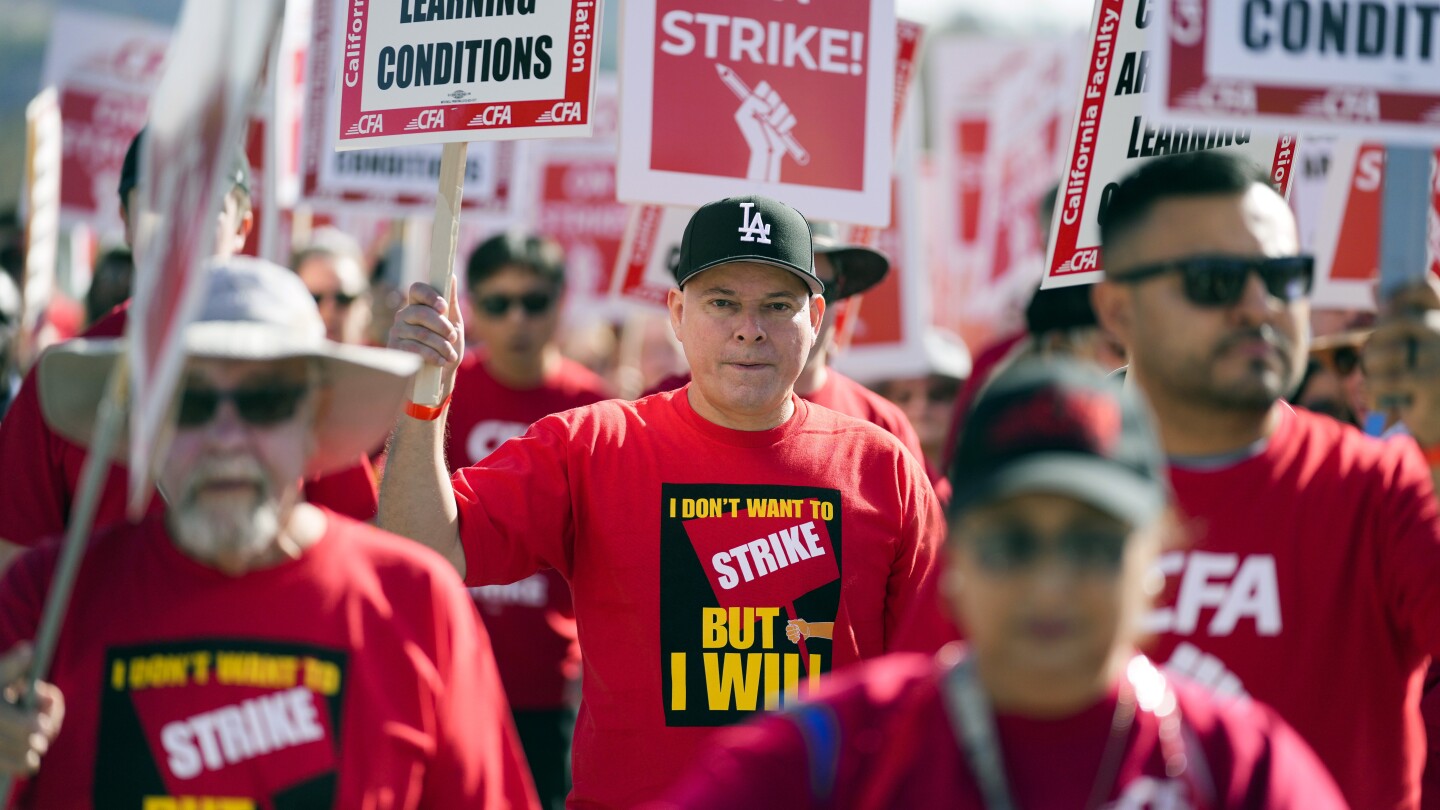SAN FRANCISCO (AP) — More than 30,000 professors, librarians, plumbers, electricians, and other workers at California State University, the largest public university system in the U.S., walked off the job Monday in a weeklong strike to demand higher wages.
The stoppage across Cal State’s 23 campuses comes two weeks after CSU officials ended contract negotiations with a unilateral offer of a 5% pay raise effective Jan. 31, far below the 12% hike that the union is seeking.
With the new semester beginning Monday, classes for many of the system’s 450,000 students could be cancelled, unless faculty individually decide to cross picket lines.
The California Faculty Association represents roughly 29,000 workers. They will be joined on the picket lines by 1,100 CSU skilled trades workers represented by the Teamsters Local 2010, which has also not yet reached a new contract with the university.
Cal State Chancellor Mildred Garcia said Friday in a video call with journalists that the university system had sought to avoid a strike but the union’s salary demands are simply not viable.
“We must work within our financial reality,” she said.
In December, CFA members staged one-day walkouts on four campuses in Los Angeles, Pomona, Sacramento and San Francisco to press for higher pay, more manageable workloads and increased parental leave.
The union says the university has money in its “flush reserve accounts” and could afford the salary increases with funds from operating cash surpluses and the $766 million CSU has in emergency reserves.
Leora Freedman, CSU’s vice chancellor for human resources, said Friday those reserve funds cannot be tapped for wage hikes because they are meant for times of economic uncertainty or emergencies, including wildfires or earthquakes.
“We’ve made several offers with movement, and most recently a 15% increase that would be paid over three years, providing faculty a 5% increase each year. But the faculty union has never moved off its 12% demand for one year only,” she said.
The increase the union is seeking would cost the system $380 million in new recurring spending, which the university can’t afford, Freedman said.
The past year has seen lots of labor activity in the country as health care professionals, Hollywood actors and writers and auto workers picketed for better pay and working conditions.
In California, new laws have granted workers more paid sick leave as well as increased wages for health care and fast food workers.
In 2022, teaching assistants and graduate student workers in the University of California System went on strike for a month, disrupting classes as the fall semester came to a close.

